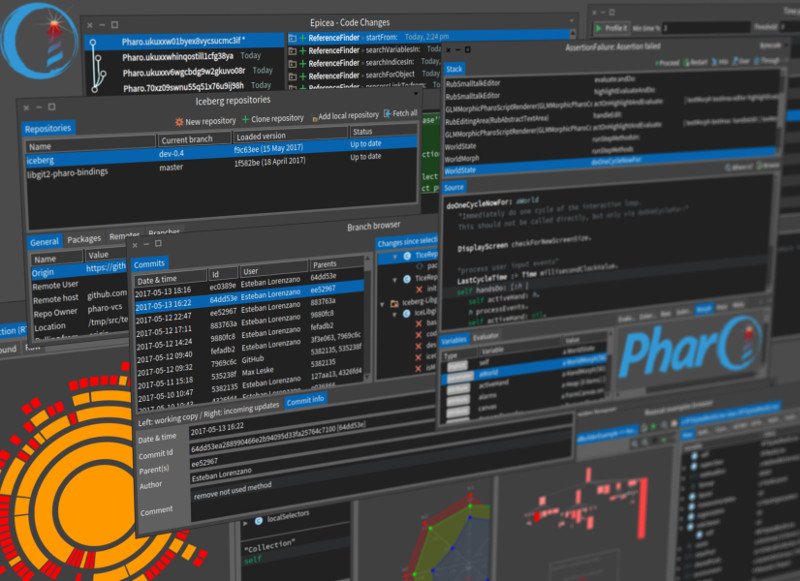This repository contains sources of the Pharo language. Pharo is a pure object-oriented programming language and a powerful environment, focused on simplicity and immediate feedback (think IDE and OS rolled into one). Visit us on https://www.pharo.org or Pharo Discord Server
To download the Pharo stable version for your platform, please visit:
This repository contains only sources of the Pharo image. The virtual machine source code is managed in a separate repository:
This repository is being built on a Jenkins server and uploaded to files.pharo.org.
The minimal image contains the basic Pharo packages without the graphical user interface. It is useful as a base for server-side applications deployment.
To bootstrap a new Pharo image you need the latest stable version of Pharo. For more information about bootstrapping, refer to guillep/PharoBootstrap.
The bootstrapping can be done on a properly-named branch using the following script:
./bootstrap/scripts/bootstrap.shThis will generate and archive images at various stages of the bootstrap process up to the full image in Pharo11.0-64bit-hhhhhhh.zip where hhhhhhh is the hash of the current checkout. Additional information on the stages of the bootstrap and how to snapshot during the process are provided as comments in bootstrap.sh.
- You can set the
BUILD_NUMBERenvironment variable to a unique integer (this is typically used only for the official builds and will default to0if not specified). - You can set the
BOOTSTRAP_ARCHenvironment variable to either64(the default) or32. - You can set the
BOOTSTRAP_REPOSITORYandBOOTSTRAP_CACHEenvironment variables to do the bootstrap outside of the source repository. - You can set the
BOOTSTRAP_VMTARGETenvironment variable to make the bootstrap use a virtual machine already present in your system (otherwise it will download it). - If you are on a branch that doesn't follow the expected naming convention ('
PharoX.Y'), then the script will pick an appropriate default (such asPharo11.0). To build Pharo11.0 from a custom branch, you need to setBRANCH_NAME=Pharo11before the bootstrap script is run.
You can also use Docker if you prefer to control the bootstrapping environment completely. The following Dockerfile provides a Docker image with a fresh build. You can repeat the command git pull && ./bootstrap/scripts/bootstrap.sh in a container at any time:
# docker build --tag pharo .
# docker run --rm --name pharo -it pharo
FROM ubuntu:22.04
RUN apt-get update && apt-get -y install build-essential git wget zip
RUN git clone https://github.com/pharo-project/pharo.git /root/pharo
WORKDIR /root/pharo
RUN git pull && ./bootstrap/scripts/bootstrap.sh
ENTRYPOINT [ "bash" ]Alternatively, in the root directory of this project (after a git clone), you can set up a Docker volume pointing to the project directory and build from within the Docker container (nice for Windows environments!):
# in the host environment start a Docker container
docker run --rm -it -v $(pwd)/:/pharo --workdir /pharo ubuntu:22.04 bash
# in the container add the required packages and start the bootstrap script
apt-get update && apt-get -y install build-essential git wget zip
./bootstrap/scripts/bootstrap.shThis source code repository is exported in Tonel format. In this format, packages are represented as directories and each class is inside a single file.
Pharo is an open source project very friendly to contributions of the users. See the document CONTRIBUTING how you can help to improve Pharo.



